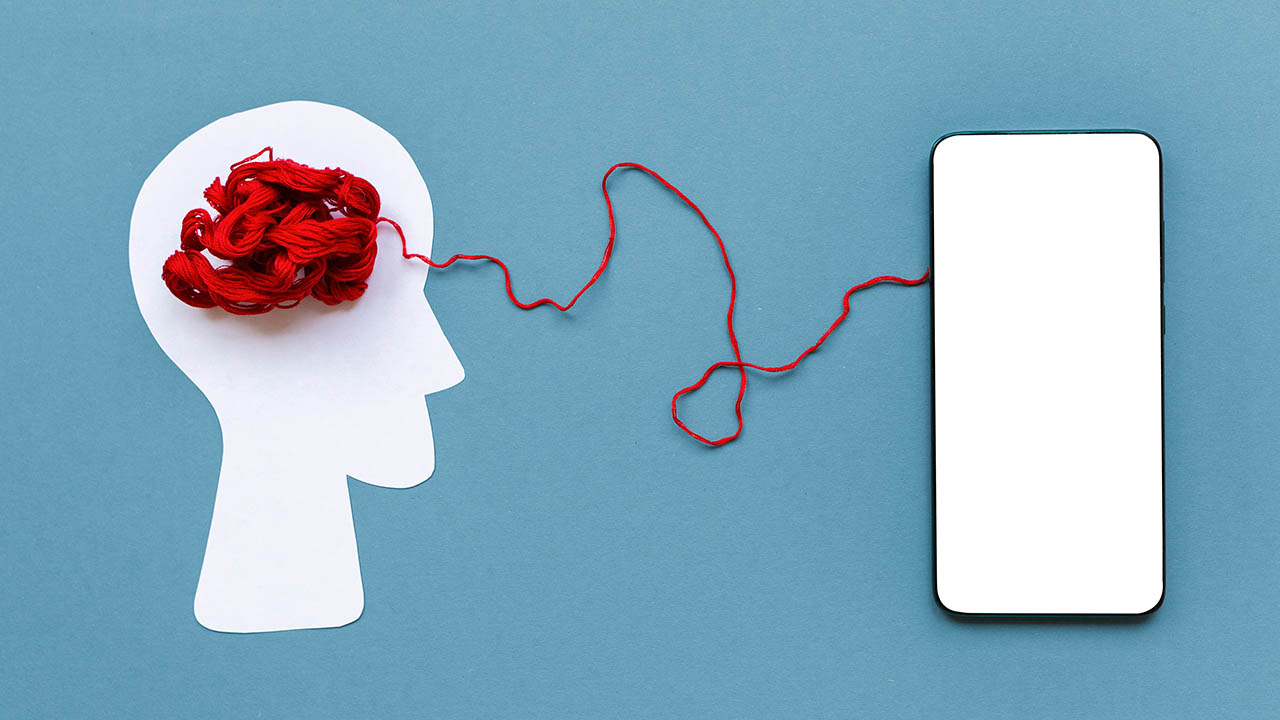iOS update comes with new mental health tracker
 CREDIT: ILDAR ABULKHANOV
CREDIT: ILDAR ABULKHANOVThere are pros and cons with letting AI track your mental state.
Since the dawn of the creation of iPhones, every new iOS update has had some interesting features and new applications come with them. In the most recent update, iOS 17, Apple has released a new feature in its health and wellness app where the user logs mental health levels throughout the week. It’s one of the first steps Apple is taking to help owners of their products keep a record of their mental health in this specific way.
How the app works is very straightforward. In the health app, users can open a tab that brings them to the mental wellness tracker, where they use a slider to input how they’re feeling at that very moment they are using the app, which then adds the data to a chart that shows the information from the given week. In the second portion, users then can pick from a selection of reasons that contributed to the way they are feeling. The thought behind this feature seems quite interesting, but leaves many wondering if it actually works and helps someone’s overall mental state improve.
Owen Chevalier, a research associate from Western University who works in mental health and media, tested out the new iPhone feature for himself to see what outcomes could come about from using it daily. He talked about the positives that come from writing down your feelings and the ease of accessibility the app gives the person using it.
“I know there is some evidence to suggest that tracking or journaling changes in moods can be beneficial to helping out with mood disturbances, so keeping a log throughout the day of how you are feeling, what life events might be leading to that way,” Chevalier said. “This could be a really easy way to track. It’s automatic, it’s on your phone, so it’s something you’re doing every day.”
For the past few months, he used the application and found there were some propitious factors, like how detailed the response the log gave at how you felt and what the contributing factors were at that time when looking at the chart.
“What I thought was interesting about it was how much it feels like the device is telling you what you’re feeling rather than reflecting what you might actually feel if you hadn’t used it. So for example, you might not remember how you felt a week ago but now you have this graph that is telling you that you were happy this number of days or sad this number of days and then it’s correlating that to other factors like exercise minutes, how much you slept. It’s kind of inviting you to draw conclusions in a way it is telling the story for you.”
Chevalier went on to explain that after using the application, he didn’t really feel different but that he was surprised at the number of days he rated positive outweighed those that were negative.
“I didn’t feel like it completely changed my life, but I didn’t expect that I was rating my days as highly as I was, so if I look back, I’m more likely to say that the day was more positive than negative and I tend to be someone who focuses on the negative, so I’ll say that I did appreciate that.”
Apple has created a global bridge into the future of Artificial Intelligence (AI) therapy where AI is capable of tracking the moods of people. This is quite uncharted territory as it’s such a new thing and there are many underlying pros and cons.
“I think that there’s a double- edged sword here,” Chevalier said. “On the one hand, it can be really helpful to have something that can track your life all the time. The negative is more conceptual or philosophical as it crosses a lot of concerns with AI and one of them is that, ‘Well, how much is your mental state a real thing in the world? And how much of it is something that you just tell yourself?’”
He also explained that although this is a good thing, it’s important to keep in mind that this is an early concept of binding mental health with technology and there’s more research that needs to be done.
“Apple cites some studies that they used with mental health and they don’t really give links to those studies. So, it’s hard to tell whether or not it’s valid or if the results are peer reviewed.”

















